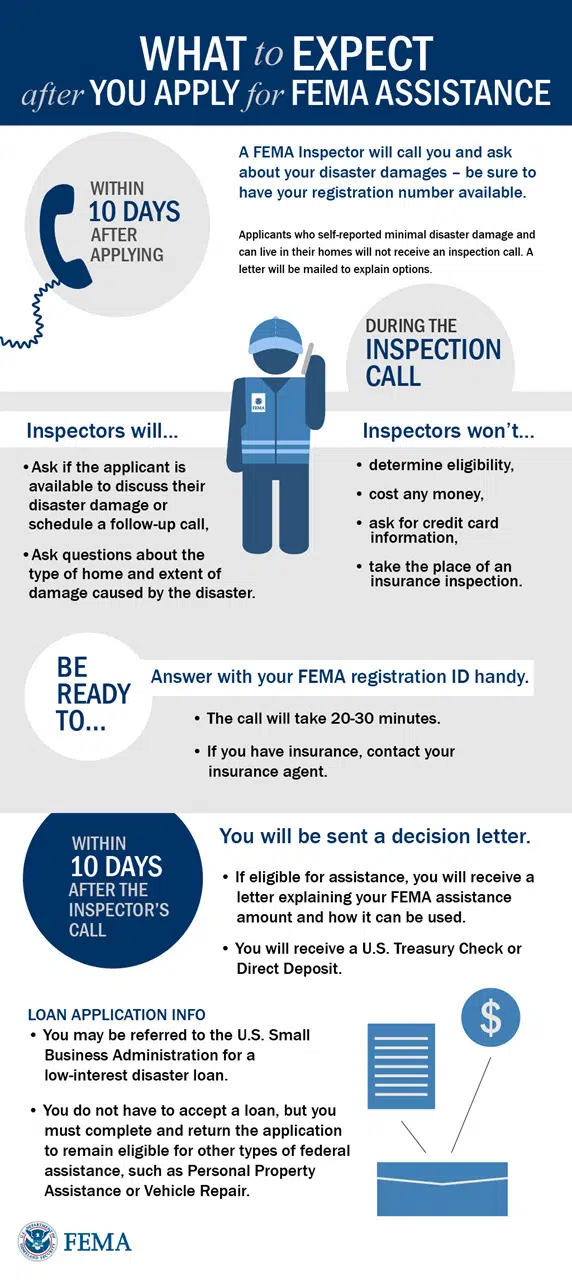 (Seguin) — If you sustained damage from snow and ice during last month’s winter storm, just know that it’s not too late to seek assistance.
(Seguin) — If you sustained damage from snow and ice during last month’s winter storm, just know that it’s not too late to seek assistance.
FEMA officials say thousands of families are still paying the cost of damages left behind by the week long storm in February. They say many of them are also unaware of the help. Disaster assistance may include financial assistance for temporary lodging and home repairs, low-interest loans to cover uninsured property losses, and other programs to help individuals and business owners recover from the effects of the disaster.
FEMA officials say to begin, if you sustained damage from snow and ice and you have insurance, contact your insurance company and then FEMA.
María Elena, of FEMA relations says your insurance claim information is needed to determine eligibility for federal assistance.
“When you have a disaster and you are insured, you have to call your insurance right away and file a claim with them immediately. If all your losses are not covered by your insurance, then FEMA can provide you some help, some assistance for those damages. Now, once you get the settlement letter from your insurance company, then you go back to FEMA if you need FEMA assistance but first you need to get your settlement to see what is going to be covered by insurance and what is not. If you don’t have any insurance, you should register for FEMA assistance immediately. You can apply online at www.disasterassistance.gov or call the 1-800-621-3362 (FEMA) number,” said Elena.
She says FEMA can also provide other types of assistance for items not covered by insurance for homeowners and renters.
“What does FEMA assistance cover? It covers property, the repair of damage related to burst pipes as well as disaster damaged heating, ventilating and air conditioning assistance, refrigerators and stoves. Also, it could include damage to the electrical, plumbing or gas in the home — about transportation, there’s assistance for primary vehicles damaged by the disaster including if a tree fell on top of your car, powerlines or if there was an accident caused by the unsafe driving conditions. There’s also child care assistance for children age 13 and younger. There’s medical and dental assistance for needs or losses caused by the disaster such as medically required items damaged by the burst pipes or medical treatment needed due to exposure to below freezing temperatures,” said Elena.
Elena says while FEMA is there to help, there are those things that are not eligible for assistance.
“Food loss, FEMA can not reimburse you for food lost due to a power failure. The volunteer organizations in your community might be able to help with that. Also, power costs, FEMA does not help with energy or other utility bills and insurance deductibles, FEMA does not cover insurance deductibles either. Now, when the damage is less than the deductible, then FEMA may provide assistance with the person’s need. Just remember that FEMA by law can not duplicate benefits or losses covered by your insurance so you must provide them with your insurance information,” said Elena.
Again, Elena says if you are uninsured, the fastest and easiest way to apply for assistance is online at DisasterAssistance.gov. You can apply 24 hours a day, seven days a week, no waiting or delays.
“Another thing that is important to know is that it doesn’t matter when you had the damage. You still can apply until FEMA starts telling you when is the deadline to apply. There is no deadline yet,” said Elena.
Other types of assistance by FEMA’s Individuals and Households Program may include:
Temporary Housing Assistance: Financial assistance to homeowners or renters to rent a temporary place to live if your home is unlivable because of the disaster, and you have no insurance coverage for temporary housing.
Lodging Expenses Reimbursement: Reimbursement of hotel expenses for homeowners or renters for short periods of time due to inaccessibility or utility outage, if not covered by insurance or any other program.
Moving and storage expenses caused by the disaster: This is moving and storage of essential household goods to prevent further damage, such as ongoing repairs, and returning property to the applicant’s primary residence.
Elena says FEMA prides itself in making sure all efforts are made to help individuals receive the help they deserve.
“If someone has problems to fill out their FEMA application, they can call the 833-283-7448 number and if they need reasonable accommodations or they need the information in their language, FEMA is translating to 10 other languages so we have the information going out in their own language if they need it,” said Elena.
If you are uninsured, the fastest and easiest way to apply for assistance is online at DisasterAssistance.gov. You can apply 24 hours a day, seven days a week, no waiting or delays.
While FEMA does not provide assistance for small businesses impacted by a disaster, it’s partner, the Small Business Administration (SBA), does offer low interest loans for business damages.




